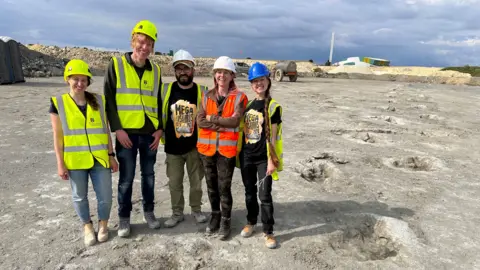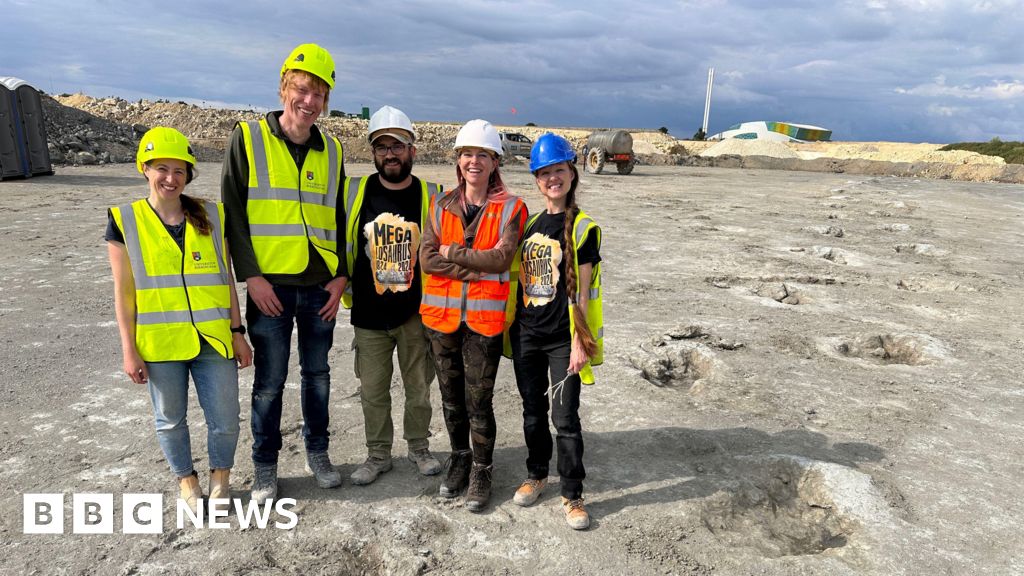Adam GreenBBC Radio Shropshire
 University of Birmingham
University of Birmingham
Prof Richard Butler (second left) and colleagues worked at the site in 2024, where they previously discovered 200 dinosaur footprints
“When you uncover a fossil, you uncover a trackway, you’re the first person, ever, who’s seen that and discovered that.”
Oswestry born Prof Richard Butler was part of the team which uncovered one of the longest dinosaur trackways found anywhere in the world.
The prints were found on Dewars Farm Quarry in Oxfordshire, with the trail extending for 220m (656ft).
“It’s an incredible site, we’ve been working for the last two years together with the University of Oxford excavating the site,” said Prof Butler, a vertebrate palaeontologist at the University of Birmingham.
“You can find out things that are completely new about past ecosystems and about past life that we just didn’t know before, and it is magical,” he said.
“At the base of the quarry, you’ve got these Jurassic-Age rocks, about 167 million years old, and they effectively preserve an ancient beach – along which many, many different dinosaurs walked, and that snapshot in time has been preserved through until the present day.”
Prof Butler got a PhD in Geology from the University of Bristol in 2002, and a PhD from the University of Cambridge in 2007.
In the years following, he did research for several institutions, including the Natural History Museum London and Emmy Noether Programme in Munich.
Now, he teaches for some of the time, as well as doing research.
“We have students who come to the university to study palaeontology and geology,” he said.
“I teach them a range of different things… I run a field course out to the west and United States to Utah and Colorado, where students learn to collect and excavate fossils in the field.”
In his research, he specialises on understanding dinosaur evolution, so has spent time travelling the world to collect fossils – including in Kurdistan, Morocco, and Scotland.

